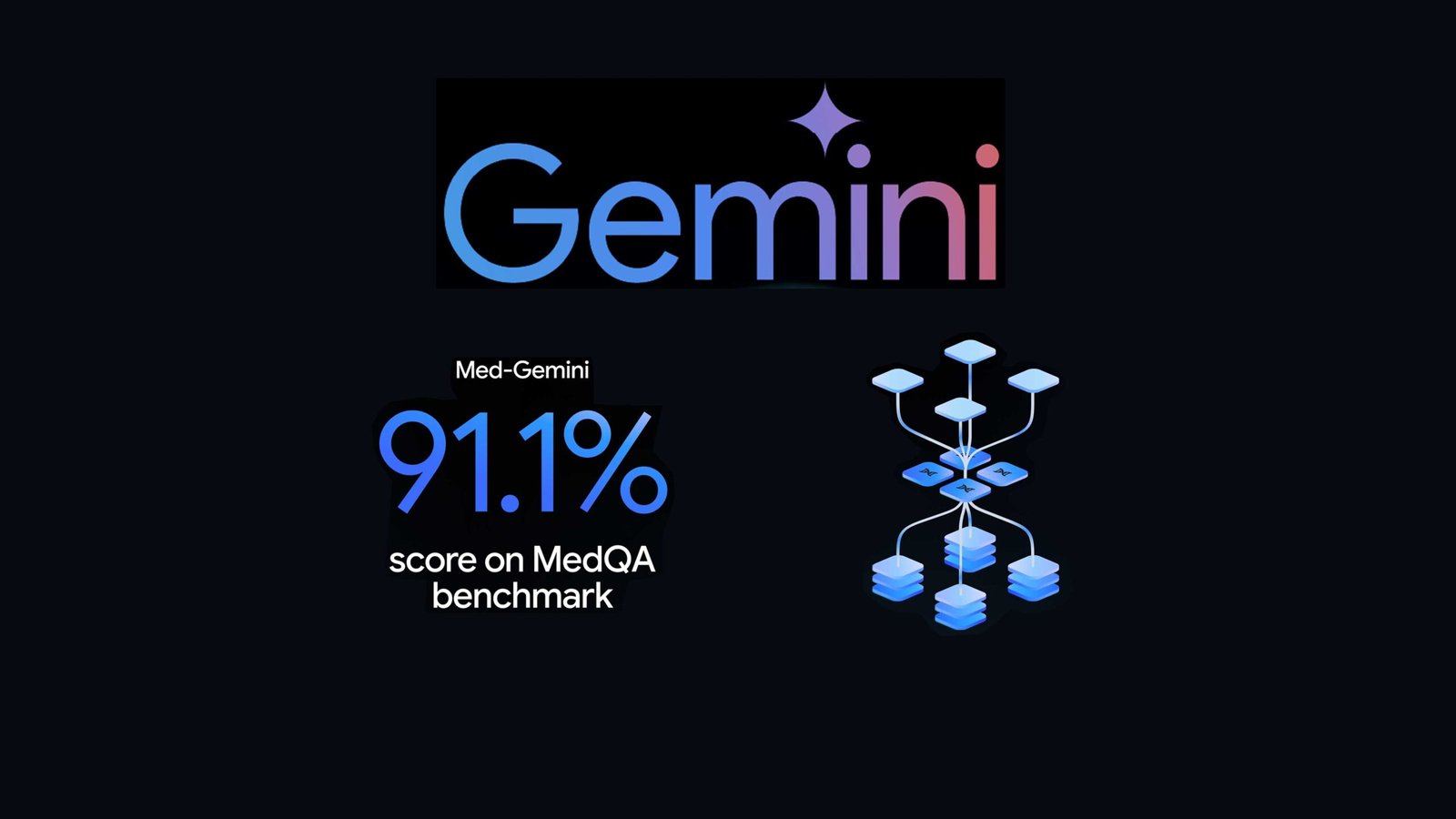The promise of artificial intelligence revolutionizing medicine is quickly becoming a reality. Recent advancements from Google, particularly with its Med-Gemini family of models built upon Gemini 1.5 Pro, highlight a significant leap forward in diagnostic capabilities. These sophisticated AI tools are demonstrating performance levels that rival human specialists, sparking both excitement and important discussions about the future of healthcare. The ability of AI medical diagnosis to process complex data signals a new era for patient care.
Google’s Med-Gemini models showcase remarkable proficiency in medical contexts. They have achieved a state-of-the-art 91.1% accuracy on the MedQA benchmark, which assesses medical question-answering abilities similar to US Medical Licensing Exams. This surpasses previous benchmarks by a notable margin. Such results suggest that AI can indeed reach a “human-level” of understanding in diagnostic challenges, offering powerful assistance to clinicians.
Unpacking Med-Gemini’s ‘Human-Level’ Capabilities
The true breakthrough of Med-Gemini lies in its multimodal understanding. Unlike earlier AI systems that might analyze only text, Med-Gemini can seamlessly process and interpret a vast array of medical data. This includes:
- Complex 3D radiology scans (CT scans, MRIs)
- Pathology slides
- Dermatology images
- Ophthalmology images
- Extensive electronic health records (EHRs)
- Genomic information
This allows the AI to synthesize a comprehensive patient picture, a task that often takes human specialists significant time and effort. Researchers demonstrate Med-Gemini’s ability to generate state-of-the-art radiology reports and engage in multimodal medical dialogue, asking for additional information when needed and providing explanations for its reasoning. This advanced capability for AI medical diagnosis enables deeper insights, particularly in identifying rare diseases or complex conditions that might be missed due to fragmented data.
The Promise: Multimodal AI Medical Diagnosis
The potential applications of this technology are vast. In clinical settings, AI could offer immediate, evidence-based diagnostic support, especially beneficial in remote areas or for rapidly triaging urgent cases. For instance, an AI could quickly analyze a combination of patient symptoms, lab results, and imaging scans to suggest potential diagnoses or flag critical findings, assisting doctors in making faster, more informed decisions. This ability to integrate diverse data streams and provide swift analysis enhances diagnostic efficiency.
Furthermore, the long-context window of Gemini 1.5 Pro, upon which Med-Gemini is built, allows it to process and reason over massive datasets, including decades of a patient’s health records. This can reveal subtle patterns or long-term trends indicative of underlying conditions that might not be apparent from isolated visits. While specific large-scale pilots of Gemini 1.5 Pro for direct patient diagnosis at institutions like Mayo Clinic are still in exploratory phases rather than widespread deployment, the technology’s capacity for in-depth analysis is undeniably transformative. The rapid advancements promise a future where AI medical diagnosis becomes an indispensable tool.
Navigating Ethical Concerns and Regulation for AI Medical Diagnosis
Despite the excitement, the integration of such powerful AI into healthcare is not without challenges. Medical organizations, including the American Medical Association (AMA), have voiced significant caution regarding “over-reliance on AI.” They emphasize that AI should augment, not replace, human expertise. Concerns include the potential for misdiagnoses, especially if the AI is trained on biased data, or if its reasoning is not transparent (“explainable AI”). While Google’s research highlights strong performance, the risk of errors, even in a small percentage of cases, demands rigorous oversight in safety-critical medical settings.
Regulatory bodies are rapidly developing frameworks for AI in healthcare. The FDA, for example, is accelerating its guidance for AI-enabled medical devices in 2025. They are establishing comprehensive approaches for lifecycle management, addressing transparency, bias, and cybersecurity. However, broad “approval for clinical use” of a foundational AI model for general diagnosis is a complex endeavor that goes beyond the approval of specific, narrow AI-powered tools. The regulatory landscape is still evolving to ensure patient safety while fostering innovation in AI medical diagnosis.
The Future of Healthcare with AI Medical Diagnosis
The journey of AI medical diagnosis from research labs to widespread clinical application is ongoing. Google’s Med-Gemini represents a groundbreaking step, showcasing AI’s potential to understand and assist with complex medical challenges at an unprecedented scale. This technological leap promises more accurate diagnoses, personalized treatment plans, and improved access to expert medical insights.
However, its successful integration hinges on continued collaboration between AI developers, clinicians, ethicists, and regulators. The focus must remain on developing AI as a trusted assistant, providing powerful tools that empower human healthcare professionals, rather than entirely replacing them. The advancements highlight a thrilling frontier in medicine, where AI can significantly enhance our ability to understand, diagnose, and treat diseases, ultimately improving patient outcomes globally.
For more news and updates, please visit PFM Today.















